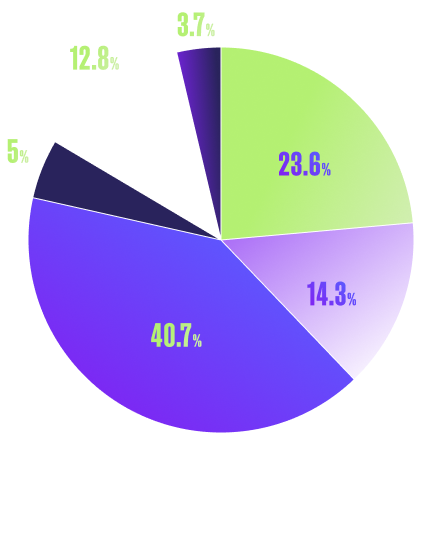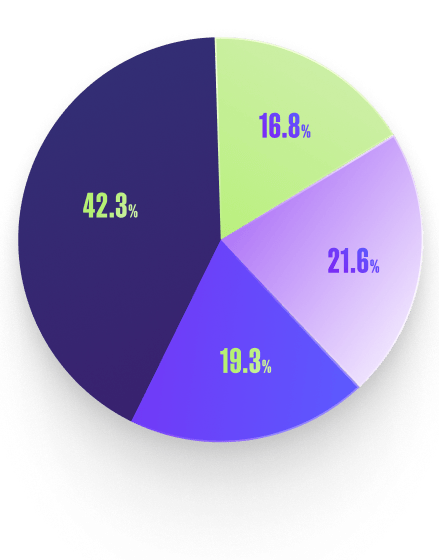
Imagine a seller who once spent hours every day buried in busywork, now free to focus on what matters: building connections with buyers. That’s not a hypothetical future — it’s already happening.
Five years ago, AI in sales meant little more than scheduling meetings and automating data entry. Today, it’s revolutionizing sales — not by replacing sellers, but by amplifying their effectiveness.
The findings from our global survey of nearly 700 sales professionals across the globe, spanning industries like Manufacturing, Medical Devices, and CPG, underscore a compelling trend. AI isn’t just changing how sales teams work, it’s helping them succeed: sellers who use AI are 20% more likely to hit or exceed their quotas compared to non-AI users.
In short: The tech that started as merely a novel time-saver has quickly evolved into a business-critical deal-maker — by making selling more, not less, human.
Sellers using AI daily or weekly are 20% more likely to expect to hit or exceed their quota compared to non-users.

Just as cookie-cutter sales pitches fall flat, a one-size-fits-all approach to AI integration misses the mark. Sales professionals have varying preferences for this groundbreaking tech, and our research uncovers a clear divide in how frontline sellers and their managers think about, trust, and use AI.
IC sellers in the field are split into three camps. There are the eager adopters: the 39% of sellers already using AI tools daily or weekly in their workflows. Then, you have the holdouts: more than a quarter of sellers who haven’t touched AI at all. The remaining 36% are the dabblers: They’re taking AI for a test drive, but haven’t fully committed.




Leaders tell a different story. They’re diving into AI more consistently, with only 13% avoiding AI altogether, compared to 29% of ICs. Leaders are also nearly three times more likely to trust AI for decision-making, with 48% comfortable using AI to guide management decisions versus just 17% of sellers trusting AI for sales choices.
Why the gap? It comes down to different needs and priorities. Leaders focus on the big picture — analyzing team performance, tracking efficiency metrics, and hitting company targets — so they’re drawn to AI tools that provide strategic insights.




Sellers, on the other hand, prioritize personal aspects of sales, like reading a prospect’s tone and maintaining relationships. They need AI that enhances these human elements without disrupting workflows.
This difference matters tremendously for AI implementation. Companies must tailor AI solutions to the cohorts who will use them.




Leaders benefit from AI-powered analytics that reveal performance trends and enable precise revenue outcomes. Sellers value AI tools that streamline administrative tasks and provide intelligent meeting insights or contextual content recommendations.
Tailoring AI to these distinct needs is key to driving adoption — and results — at every level of the revenue organization.




AI is synonymous with automating away admin work. According to our research, both sellers (34%) and leaders (36%) dream of offloading CRM updates. But if that’s all your sales team is using AI for, you’re missing the bigger picture.
Here’s the reality of a seller’s day: They’re spending nearly half their working hours on activities that happen before and after customer conversations. Two hours disappear into territory planning and prospecting. Another hour goes into prep work like finding relevant marketing content. More than another hour is eaten up by follow-up tasks like writing meeting summaries and emails.




That’s a lot of a seller’s time spent not selling.
This is where it gets interesting: Sellers want more from AI than busywork help. Of the sellers who handle prospecting and outreach, 70% seek support for the task. The same pattern shows up in content creation. Among sellers who create customer presentations, 77% are open to help.
Sellers are imagining how AI can help them work smarter, not just faster. Sellers want to redirect their energy to higher-level tasks: More than one-quarter (27%) of ICs believe AI will free them to focus on value-driving interactions with customers.




Organizations that focus solely on using AI to streamline rote tasks are solving yesterday’s problems. Agentic AI is the future, when intelligent agents manage entire processes.
This is where the real opportunity lies — deploying AI across the entire sales workflow so sellers spend time with the right people in the right ways — from making prospecting more precise to helping sellers create more compelling presentations.




#1


Nobody likes a micromanager — whether it’s an overbearing human boss or an overly prescriptive algorithm. Instead, sellers want AI to inform their decisions, but not make them outright.
Based on our survey, more than half (56%) are eager to have AI help them brainstorm ideas for key sales decisions like prioritizing leads or tailoring messaging.




But only 6% would hand over the final say to AI.
This pattern shows up across sales activities. While 85% of sellers are open to AI helping spot potential deals, they’re adamant about retaining control over buyer communications. Sales leaders feel the same about maintaining autonomy. 61% say they’d accept AI insights when evaluating seller performance and 48% of leaders would use AI to help validate their decisions.




However, they’d prefer to stick to their own intuition for the ultimate call.
What is driving this preference? AI is only as good as the inputs it receives — the model, the data, and the biases it might inherit. Sellers and leaders know that AI can offer valuable insights, but they also understand that those insights need to be evaluated in context.




This data provides a blueprint for how AI can fit into the sales process. Sellers and leaders alike want AI as a trusted companion that can analyze data, spot patterns, identify missed opportunities, and make useful suggestions. The most effective AI integrations will gauge when to step forward with insights — and when to stay quiet.




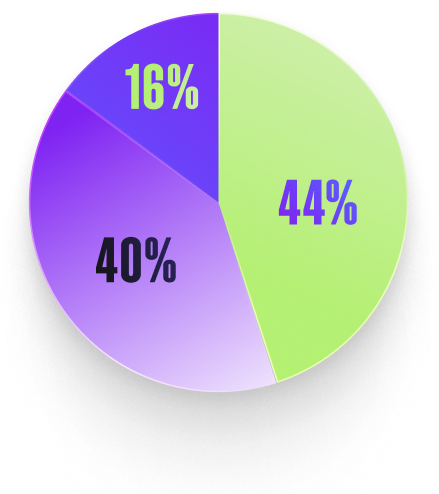



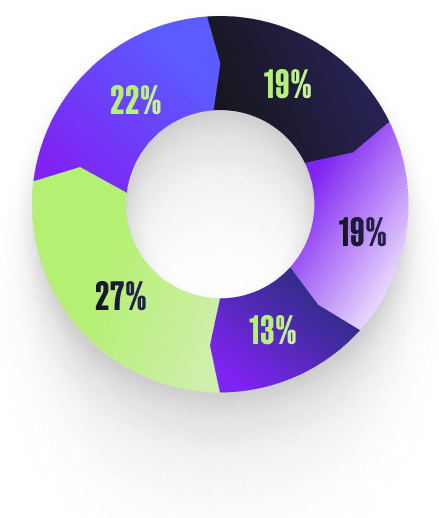





61
%

Most want complete authority, but some will embrace assistance.
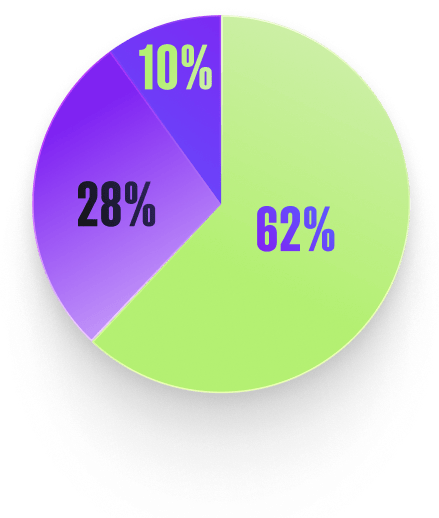



AI integration challenges run deeper than growing pains. Seller preferences reveal a fundamental truth: human connection is irreplaceable. While AI optimizes aspects of selling, it can’t replicate face-to-face moments — in a hospital corridor, at a conference, on a factory floor, near a construction site — and sealing a deal with a handshake (or a virtual high-five).




Our numbers back this up. Sixty-two percent of sellers insist on maintaining complete control over their customer conversations. While another 28% of sellers might accept some assistance for tasks like real-time note-taking or suggesting relevant content during calls, they draw a hard line at letting AI take the mic and interact with customers. That’s 90% of sellers who see direct human interaction as non-negotiable.




The future of sales lies in AI that empowers sellers to be more present, prepared, and effective in the crucial moments that make or break deals. This insight should guide every AI implementation decision. Tools like the new Showpad Assist ensure teams get this synchronization right — matching the science of AI’s strengths with the art of human expertise. And this allows every revenue team to create a force multiplier effect and drive unprecedented sales performance.





Every seasoned seller knows that trust isn’t given — it’s earned. Buyers trust their sellers because they’ve proven their value over time. Today’s AI tools need to earn that same level of trust from the sellers who use them.
Our research reveals three core concerns that shape how teams evaluate AI: privacy, accuracy, and quality.
Privacy concerns reflect sellers’ commitment to protecting sensitive customer information. Accuracy focuses on whether AI’s outputs are factually true — for instance, whether it rightly identifies a prospect’s industry or accurately recalls past interactions.




Quality speaks to effectiveness. While an AI tool might write a grammatically correct email, if it misses the mark on tone or timing, it’s not genuinely useful. Our data implies this is a real worry for sellers: Just 9% trust AI to navigate nuanced “unwritten rules” of customer communications — like whether to follow up immediately after a proposal or give the prospect a few days to digest it.
For AI to earn sellers’ and leaders’ trust, it needs to excel in all three areas.




Additionally, AI sales tools must meet the standards of reliability, transparency, and rigor that complement sellers’ hard-won wisdom.
Sales professionals spend years developing sophisticated instincts. They learn to read between the lines of customer conversations, sense the perfect moment to advance a deal, and recognize when a prospect’s objection masks a deeper business challenge. It’s unsurprising they want AI that augments — rather than overrides — this finely-tuned judgment.




For companies seeking to add AI to their sales tech stack, building trust must be a foundational priority, not an afterthought. This means selecting tools with robust privacy protections and demonstrated high rates of accuracy.
Companies that take time to validate AI solutions against these trust criteria can turn initial concerns into quick adoption, lasting confidence, and high ROI within their teams.




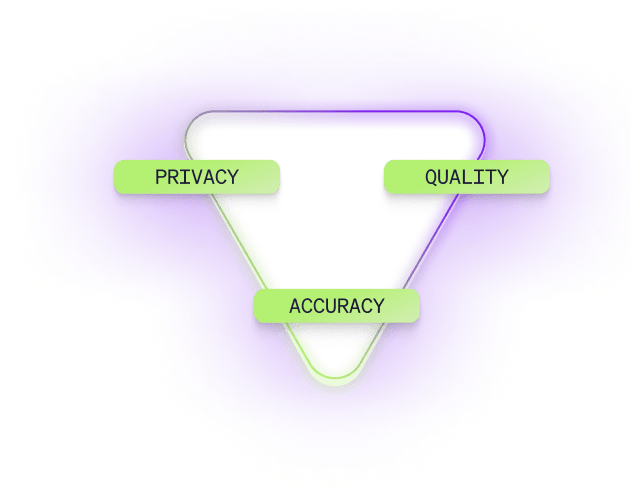
If you’re solely focused on how AI can save your sellers time, you’re missing the bigger opportunity. Would you rather have a seller with 10% more time, or a seller who’s 10% more effective with buyers? Your competitive edge will come from an AI that can do both. Showpad Assist enables sellers to make time for just one more meeting a day — and make the best use of that time with the customer.
Any AI that claims it can replace sellers before the deal is done — or customer support teams after the ink is dry — is selling an illusion. Vet tools carefully, ensuring they’re right for your teams and use cases and scrutinized for privacy and security policies.
Trust builds gradually and breaks instantly — whether that’s between an account manager and their customer or between your seller and your software. Establish the foundation of trust by giving sellers authority over how they use AI. Support your sellers with the right trusted AI tools that allow for them to retain granular control and oversight — so they can choose when to delegate tasks completely and where to maintain decision-making.
Sellers spend nearly half their day on planning their schedule, preparing for conversations, and following up with customers. Begin adopting tools that tackle these behind-the-scenes tasks like recommending next steps, and later expand to more advanced applications, such as objection-handling or deal risk assessment.
The most effective AI-powered workflows don’t attempt to automate customer relationships — they allow sellers to focus on what matters most: building trust, understanding customer needs, and delivering personalized value. By automating routine tasks like data entry, content discovery, and follow-ups, AI frees sellers to invest their time in deeper, more meaningful conversations that drive lasting relationships and long-term business success.

AI is evolving from an assistant to an indispensable agent. By integrating AI thoughtfully, revenue teams can deliver smarter, more meaningful customer interactions at scale.
It will help revenue teams forge deeper connections at an unprecedented scale, ensuring every customer and prospect interaction is informed by unparalleled intelligence. As sellers and managers alike navigate this transformation, trust and thoughtful integration will be key to unlocking AI’s full potential.
